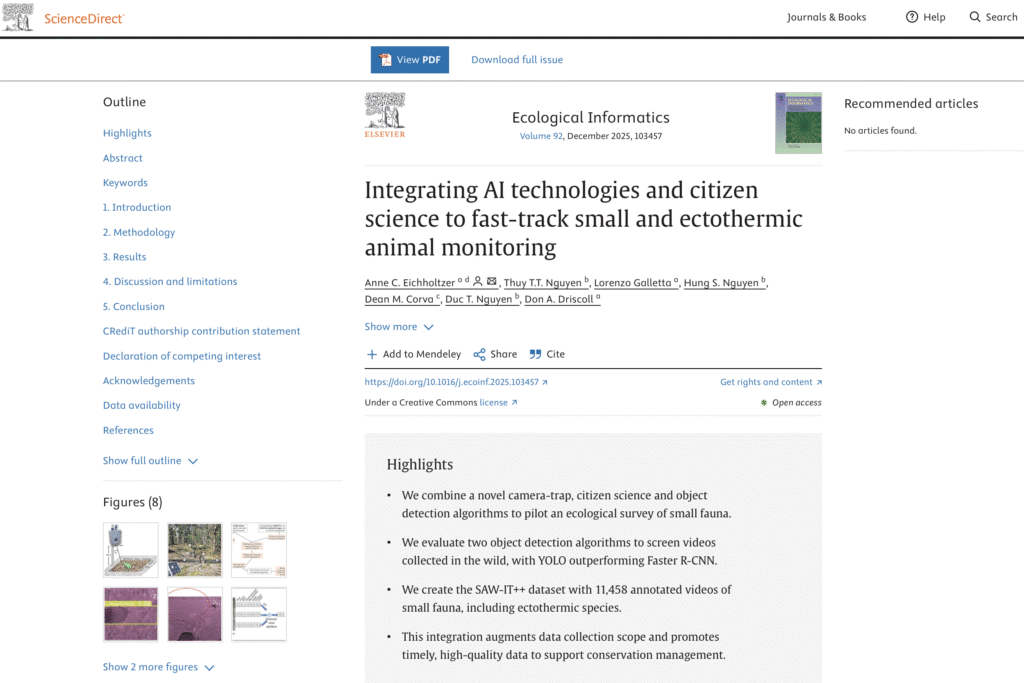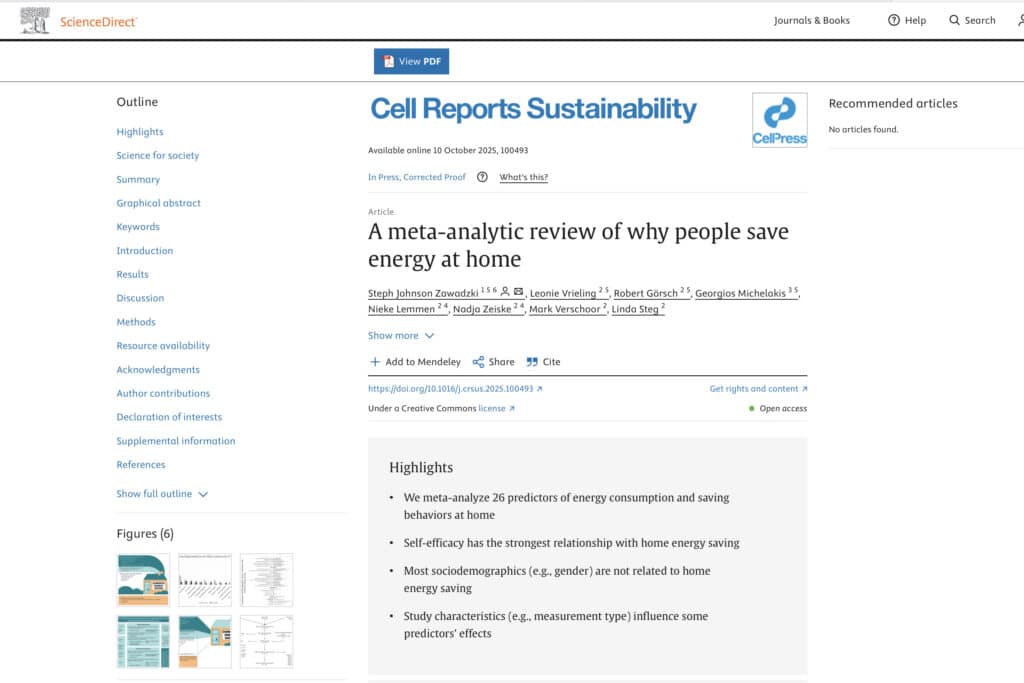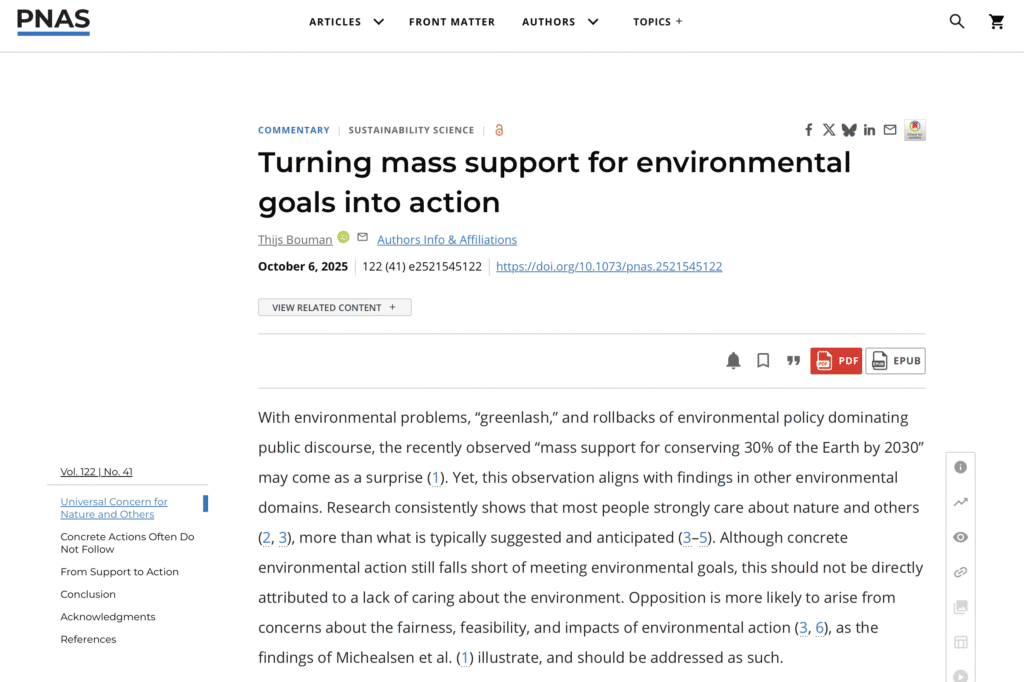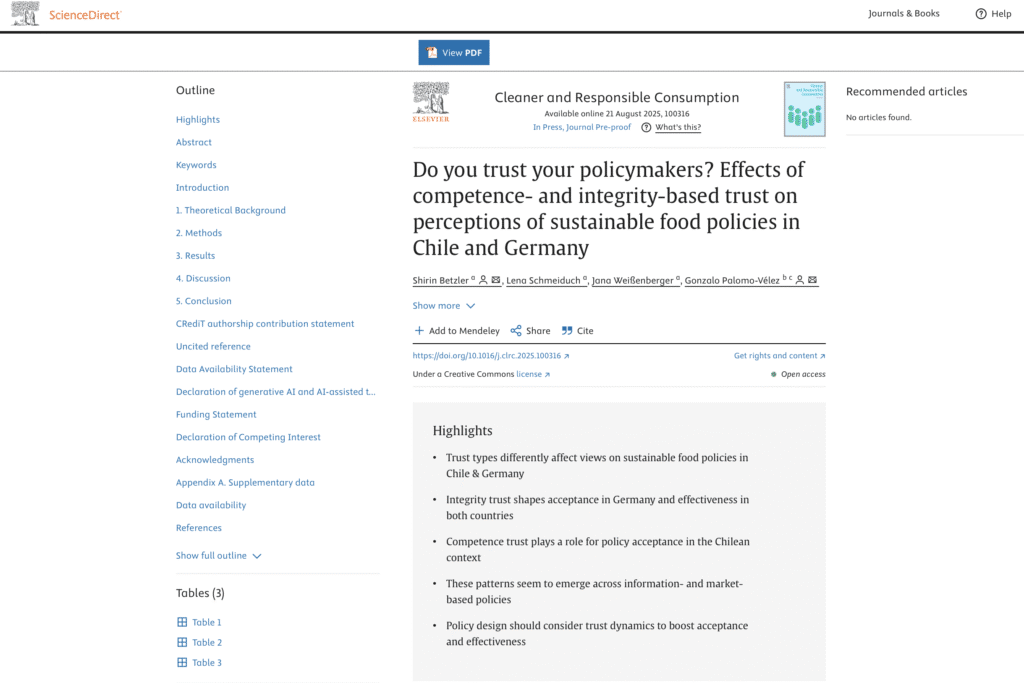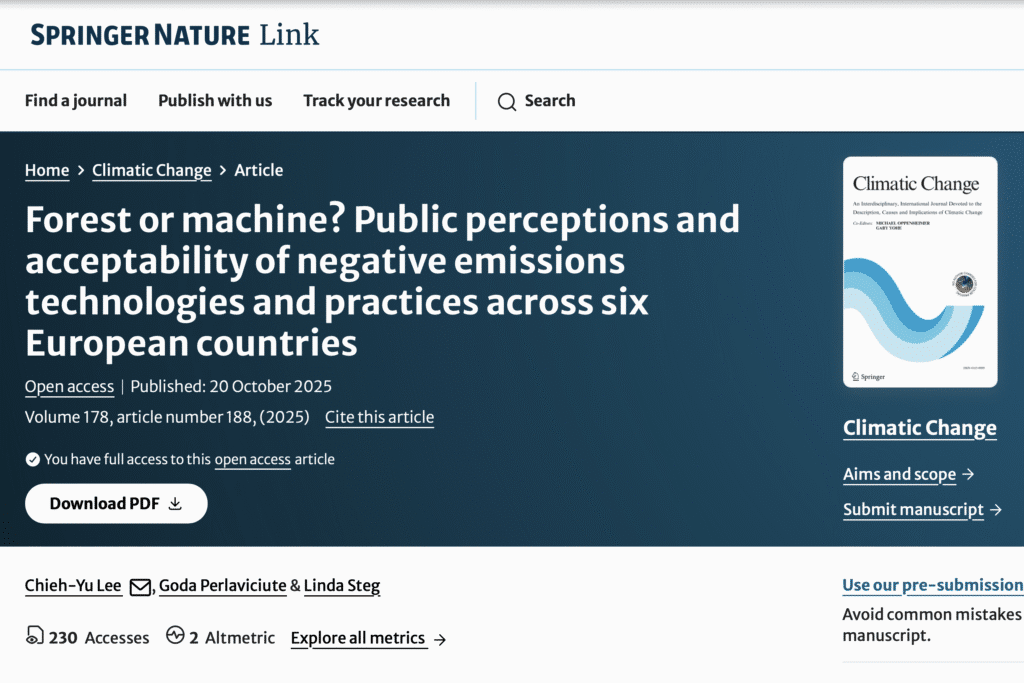
Forest or machine? Public perceptions and acceptability of negative emissions technologies and practices across six European countries
We conducted a large scale survey on NETPs in six EU countries (N = 5,310) to examine: (1) public preferences for NETPs, next to other mitigation options; (2) how people evaluate the environmental and intergenerational consequences and acceptability of nature-based (i.e., afforestation and reforestation; AR) and technology-based NETPs (i.e., direct air capture with carbon storage; DACCS); (3) the relationship between the evaluation of consequences and acceptability judgements of AR and DACCS; and (4) public preferences for AR and DACCS in general versus in their own country.
Featured publications

Forest or machine? Public perceptions and acceptability of negative emissions technologies and practices across six European countries
We conducted a large scale survey on NETPs in six EU countries (N = 5,310) to examine: (1) public preferences for NETPs, next to other mitigation options; (2) how people evaluate the environmental and intergenerational consequences and acceptability of nature-based (i.e., afforestation and reforestation; AR) and technology-based NETPs (i.e., direct air capture with carbon storage; DACCS); (3) the relationship between the evaluation of consequences and acceptability judgements of AR and DACCS; and (4) public preferences for AR and DACCS in general versus in their own country.
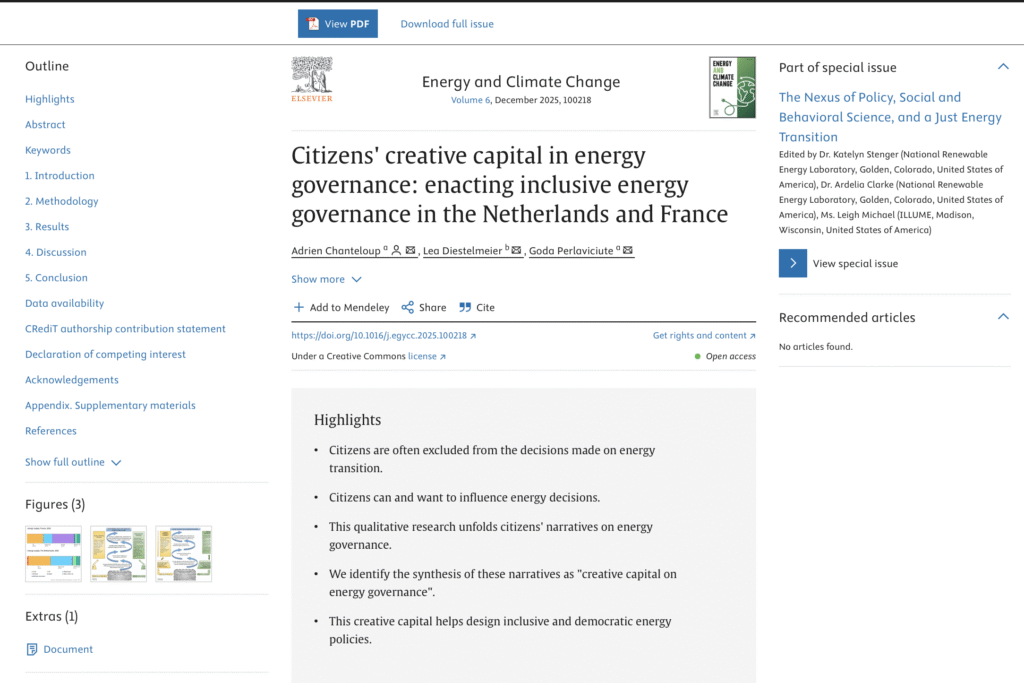
Citizens’ creative capital in energy governance: enacting inclusive energy governance in the Netherlands and France
We identify citizens’ “creative capital” for energy governance and argue that this brings added value for designing energy governance for a more socially, politically and environmentally sustainable energy system.
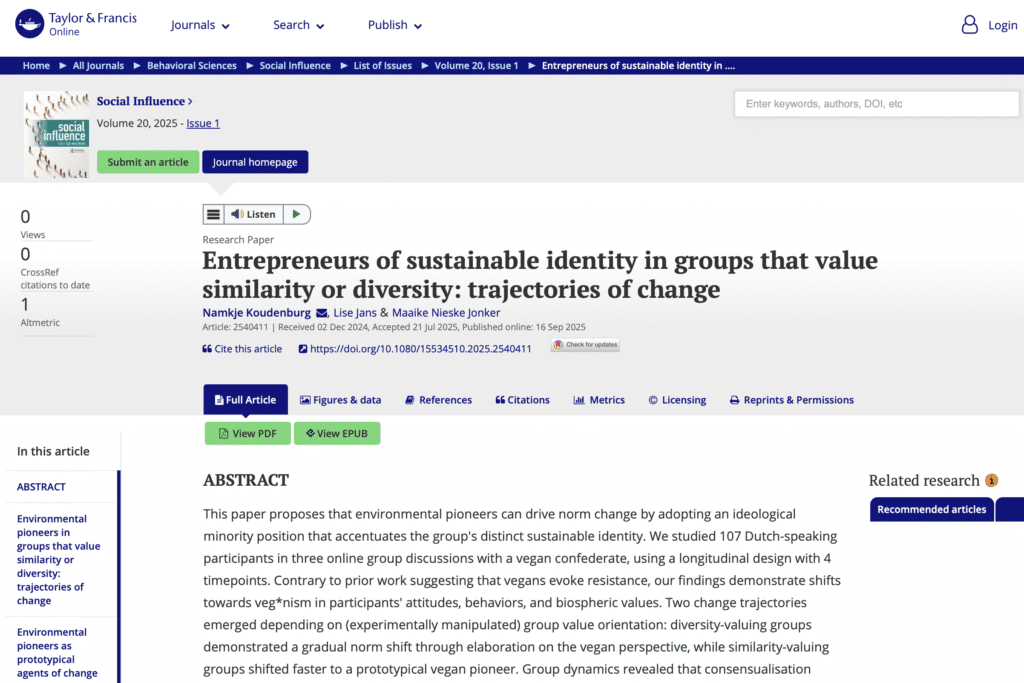
Entrepreneurs of sustainable identity in groups that value similarity or diversity: trajectories of change
Contrary to prior work suggesting that vegans evoke resistance, our findings demonstrate shifts towards veg*nism in participants' attitudes, behaviors, and biospheric values.
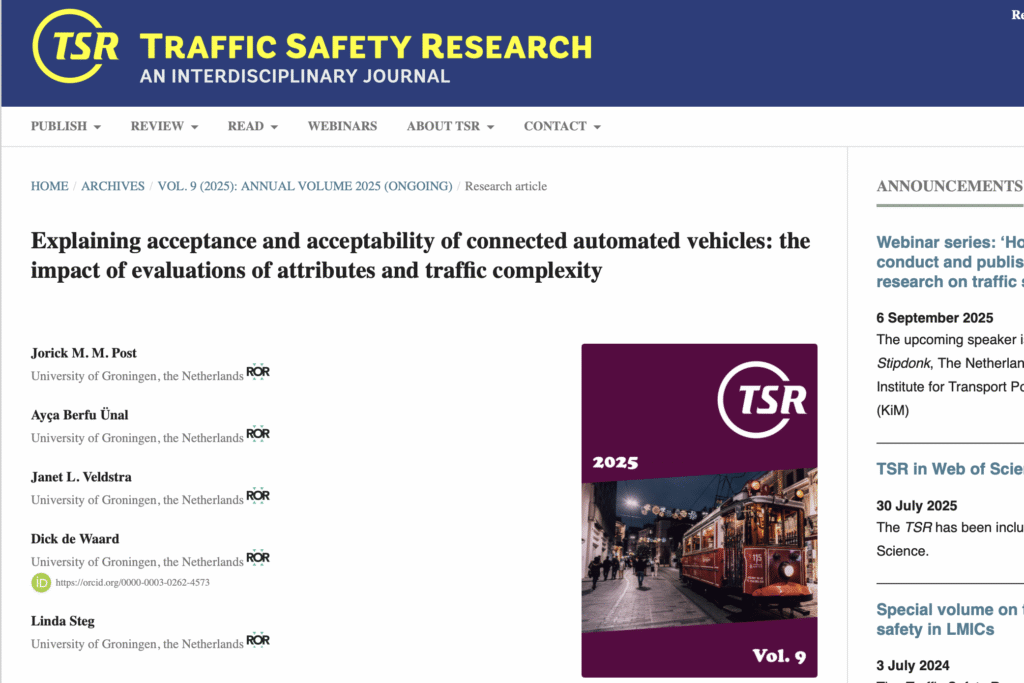
Explaining acceptance and acceptability of connected automated vehicles: the impact of evaluations of attributes and traffic complexity
Policies aimed at enhancing safety, driving pleasure, trustworthiness of Connected Automated Vehicles (CAVs), and by ensuring that CAVs are able to meet people’s mobility needs could increase both acceptability and acceptance of CAVs.
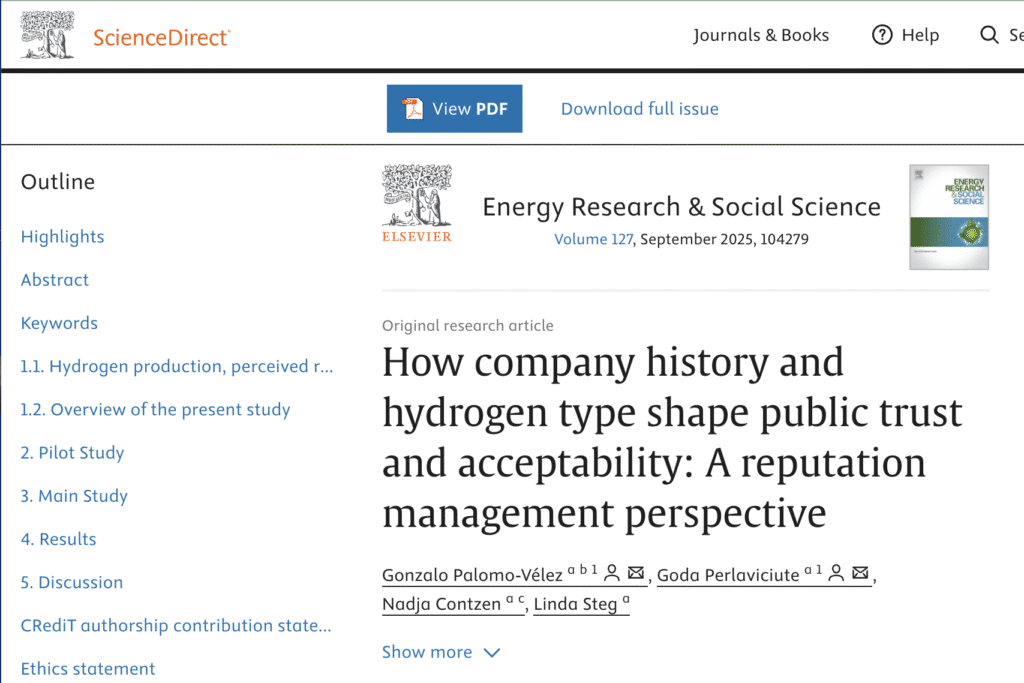
How company history and hydrogen type shape public trust and acceptability: A reputation management perspective
For public acceptability of hydrogen, the company's history was not relevant, with green hydrogen being more acceptable than blue, regardless of which company produced it.
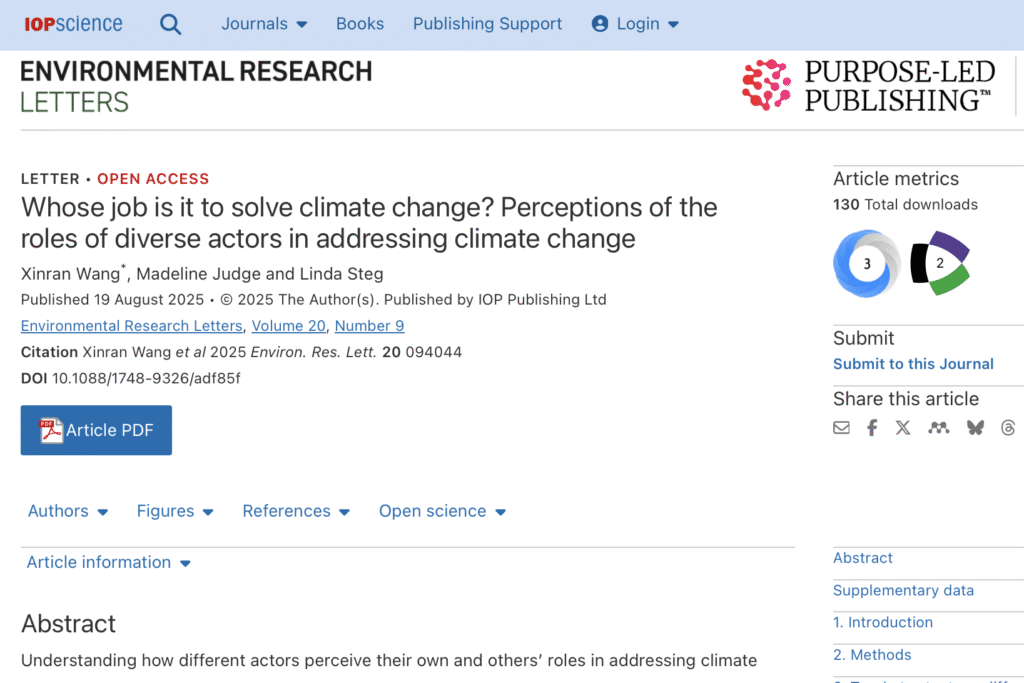
Whose job is it to solve climate change? Perceptions of the roles of diverse actors in addressing climate change
We found that Dutch residents and representatives from governments and businesses believe that most societal actors are not doing enough and that the government and businesses are most responsible and capable of taking climate action.

Reducing environmental pressure through a more circular consumption of clothes
Buying fewer new clothes, and choosing more durable garments, garments made from more environmentally-friendly and from recycled materials are behaviours that have the highest reduction potential when behavioural plasticity is considered.
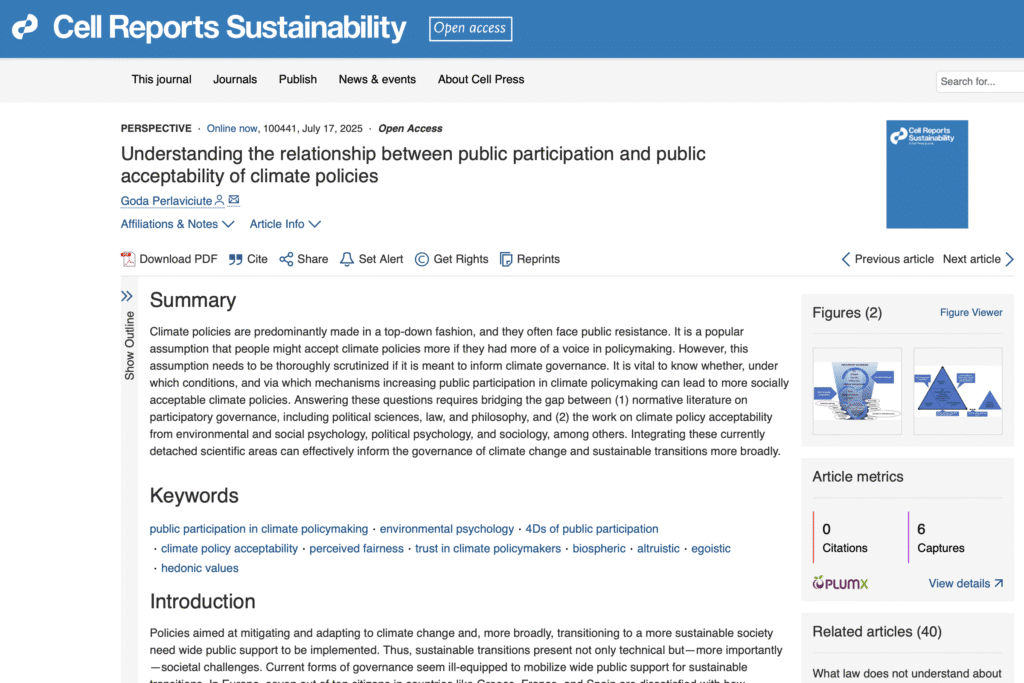
Understanding the relationship between public participation and public acceptability of climate policies
It is vital to know whether, under which conditions, and via which mechanisms increasing public participation in climate policymaking can lead to more socially acceptable climate policies.

Circular citizenship behaviors: How individuals can promote systemic change toward a circular economy
We propose the systemic change through citizen action (SCCA) framework that indicates which actions citizens can take to promote systemic changes that contribute to a circular economy.

What motivates tourists to conserve water on vacation? Examining the role of personal climate-based values
This article aims to determine to what extent the personal values of tourists staying in Mallorca during 2021 and 2022 are predictive of in-room water conservation habit patterns and what such values could add to the more commonly studied sociodemographic and leisure activities of tourists.
